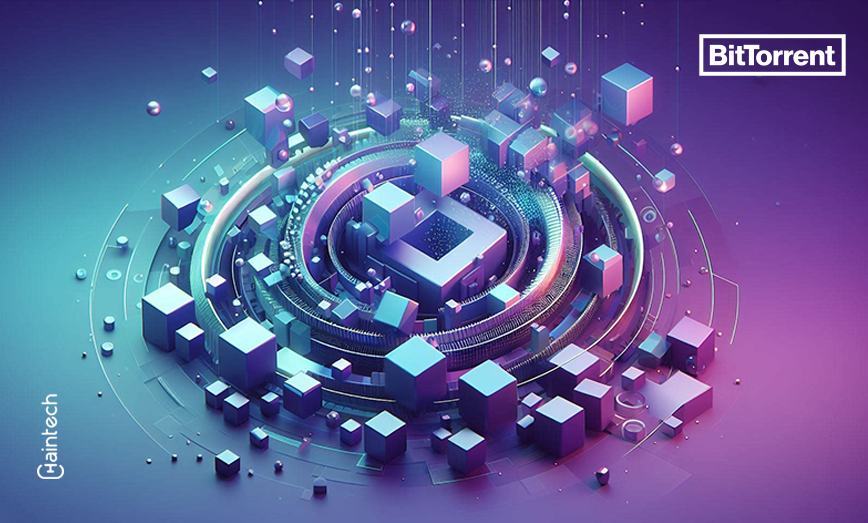Insuring The Future: How AI And Blockchain Are Transforming India’s Insurance Landscape

The story of insurance in India is a tapestry woven with threads of ancient wisdom and modern resilience. As we step into the intriguing world of India’s insurance sector, it’s vital to acknowledge that its roots stretch deep into history, reaching back to the pages of ancient texts like the Manusmriti, Arthashastra, and Dharmasastra. These age-old writings laid the foundation for a concept that would eventually evolve into one of India’s most pivotal financial instruments.
The insurance journey in India, however, took shape in the early 19th century. In 1818, the Oriental Life Insurance Company emerged in Calcutta as a pioneering force, marking the inception of life insurance in the subcontinent. Yet, this trailblazing venture faltered and succumbed to failure in 1834. Despite the setback, it is fascinating to note how the phoenix of the insurance industry rose from its ashes to become a formidable contributor to India’s modern economy.
Today, the Indian insurance sector stands as a testament to resilience and adaptability. It has not only weathered past storms but has grown to be a substantial contributor to India’s GDP. This thriving sector in India is continuously evolving and is currently undergoing a remarkable transformation.
AI and Blockchain: A Spurring Storm
In the intricate web of India’s insurance ecosystem, a multitude of stakeholders come together, including insurance companies, beneficiaries, providers, third-party administrators (TPAs), intermediaries, reinsurers, InsureTechs, startups, value-added service providers, and government regulators. However, their interactions are hindered by fragmented information flow, resulting in disjointed and often inefficient processes.
However, times are evolving, and a significant transformation is underway. The insurance industry, rooted in traditional practices for generations, is now at the forefront of a profound digital revolution. This transformation finds its driving force in the synergy of two transformative technologies: Artificial Intelligence (AI) and Blockchain. AI’s remarkable data processing capabilities and decision-making prowess are enhancing customer experiences, streamlining operational workflows, and mitigating risks. Simultaneously, blockchain’s decentralized ledger technology is ushering in a new era of transparency, trust, and security, a stark contrast to the industry’s historical complexity and opacity. Together, these innovations are rewriting the rules of the game, setting the stage for a more efficient, customer-centric, and secure insurance landscape in India.
Role Of AI And Blockchain In India’s Insurance Evolution
The collaborative power of AI and blockchain technology is ushering in a revolution within the insurance industry, impacting it across various dimensions. Let’s delve deeper into these transformative changes.
Enhanced Customer Experience
AI-driven chatbots and virtual assistants are making it easier for customers to interact with insurance companies. Queries are answered promptly, claims are processed faster, and personalized policy recommendations are made based on the individual’s needs and history. Blockchain can complement the benefits of AI-driven chatbots and virtual assistants by adding an extra layer of security and trust to these interactions. Combining these technologies can create a more seamless, secure, and trustworthy customer experience.
Accurate Risk Assessment
Traditional methods of risk assessment often rely on static data, leading to one-size-fits-all policies. AI, on the other hand, can analyze dynamic data in real-time, allowing insurers to offer policies that are more tailored to individual needs. Additionally, blockchain technology can provide a secure, accurate, and privacy-respecting platform for data sharing and verification. By leveraging blockchain’s capabilities, insurers can offer policies that are not only tailored to individual needs but also based on reliable and up-to-date data, reducing the risk of underwriting errors and enabling more competitive pricing.
Smart Contracts
In the insurance industry, smart contracts can automate the claims process. When predefined conditions are met (e.g., an insured event occurs), the smart contract automatically triggers the payout. This reduces paperwork, eliminates delays, and minimizes the risk of disputes. Additionally, AI can continuously monitor and validate the data sources relevant to the smart contract conditions and provide immediate notifications to smart contracts when predefined conditions are met.
Claims Processing Efficiency
By integrating AI with blockchain, insurers can streamline the claims processing workflow. AI algorithms can quickly assess claims for validity and accuracy, and if approved, blockchain smart contracts can trigger automatic payouts. By combining AI-driven assessment with blockchain-based automation, insurers can achieve a high level of fairness and accuracy in claims settlements. Claims are processed based on objective criteria, reducing the potential for human bias or errors in decision-making. Moreover, policyholders can trust that their claims are evaluated consistently and fairly, enhancing their overall satisfaction with the insurance company.
Fraud Prevention
AI algorithms can continuously analyze vast datasets, identifying intricate patterns and anomalies that might indicate fraudulent behavior. This proactive approach allows insurers to spot potential fraudsters in the early stages of their activities, even before a fraudulent claim is submitted. With its immutable and transparent ledger, blockchain bolsters this fraud prevention effort by securely storing historical data and claim records. Any suspicious activities detected by AI are immediately recorded on the blockchain, creating a tamper-proof audit trail. This serves as a deterrent to potential fraudsters and provides insurers with solid evidence in case of disputes.
Cost Savings
AI-powered chatbots efficiently manage routine customer inquiries, providing quick and accurate responses, enhancing customer satisfaction, and reducing the need for extensive human intervention. Concurrently, blockchain technology safeguards sensitive customer data under its decentralized and immutable ledger, preventing unauthorized access and ensuring the integrity of records. These synergistic technologies drive down operational costs significantly, as fewer human resources are required for customer support, and data breaches become exceedingly difficult.









